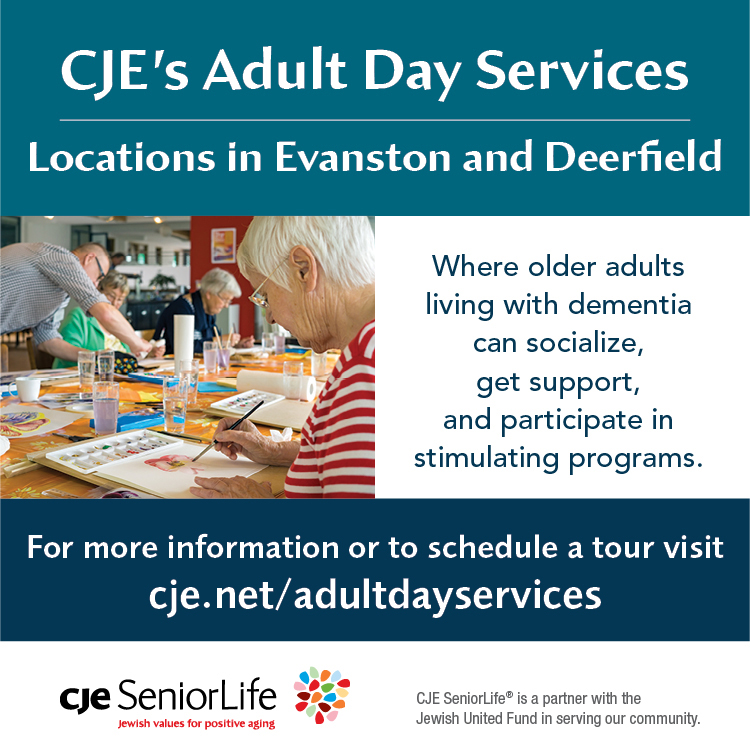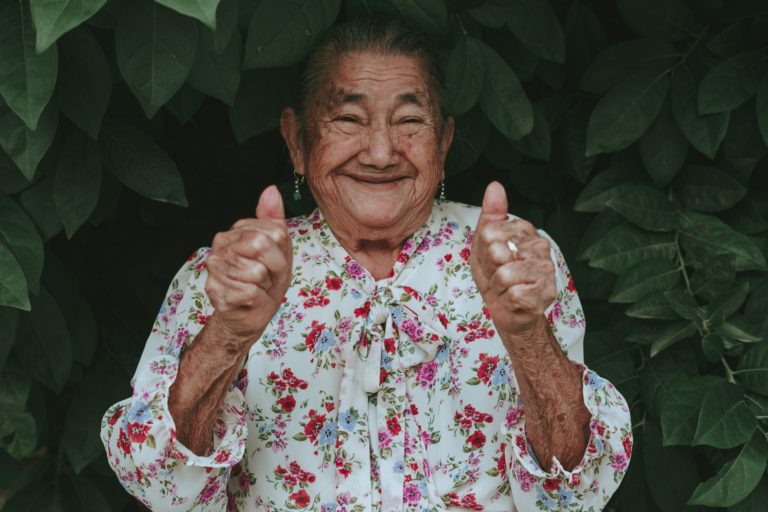
Melissa Ramsdell is a nurse and professional freelancer specializing in health writing. She has a BSN and a master’s in journalism.
Crafting a Memoir Helps Older Adults Connect
By Melissa Ramsdell
Chicagoan Beth Finke knows the power of a memoir. She teaches several classes in the Chicago area about how to write your own life story. Yet, a recent student served as a powerful reminder of the impact of writing down your memories.
A woman with dementia in Finke’s memoir class started regularly sharing ideas with her caregiver at home. The caregiver would jot down notes, craft them into an essay, and the senior would share that short essay out loud during the following class. “It sparked her memory, and it was good for her brain,” Finke says. “The caregiver enjoyed it, too. It was something they could do together.”
Finke says that writing a life story has many benefits for older adults, including stimulating the brain with new skills, healing past wounds, forging new friendships, and leaving a special gift for family.
Creating a memoir
Writing a memoir can start with a class at a senior center; an online program, such as A Life Untold and StoryWorth; or a keepsake book, such as Grandmother Remembers, which includes spots to insert personal stories, photos, and mementos.
Chicagoan Regan Burke, 75, discovered the healing power of memoir when she was struggling with mysterious fibromyalgia pain. Her doctor at the Osher Center for Integrative Medicine at Northwestern University gave her a book, Unlearn Your Pain, which included very personal writing exercises.
“They go really deep into personal traumas that could have happened to you as a child,” Burke says. “When I sat down to write, I had back pain. When I would finish [a session], the pain would be gone.”
Burke discovered Finke’s class and kept going. “I wanted more of it,” she says. Local publisher Tortoise Books published Burke’s memoir In That Number: One Woman’s March From the Streets of Protest to the Halls of Power (And Beyond) in 2020.
Connecting with others
When older adults write down their stories, it can help their children and grandchildren find a loving way to connect, find meaning, and develop new respect. So often, older adults in our society are ignored, Finke says. They don’t feel heard. But when they gather with family — memoir in hand — it can create new bonds and understanding. Later, if a person passes away, Finke believes having their life story might help family members cope better with grief.
“It’s very helpful for grieving families to hear something in their mother’s or father’s voice,” Finke says. In hospice, caregivers often help patients go through a developmental phase called life review. When people go through that process — recalling past events and finding meaning and resolution — they typically feel more peaceful at the end of life.
Another Chicago life story teacher, Sharon Kramer, has helped others write their own memoirs through an in-person class at Skyline Village Chicago, a community organization for older adults.
Special foods, family celebrations, and cultural traditions can be great jumping off points for a memoir, Kramer says. In fact, she turned her memoir into a children’s book, Time for Bubbe, published this year. The story follows a young boy and his grandmother, or Bubbe, “who babysit each other.” Kramer’s mother inspired the story, and the book includes one of her recipes.
Writing a life story
When people want to know how to organize their memories, Kramer tells them it doesn’t necessarily need to be chronological. For example, some of her students organize their story by topic, career, or hobbies. It can be useful to start file folders for different sections and drop ideas into them for later.
Writers can consider drafting one public version of their life story and one that is more personal, with more painful memories. Finke says some students take the painful parts and burn them or keep them private to help them heal or forgive.
Finke and Kramer use writing prompts to generate stories and spark memories people may not have considered for 50 years. Something as simple as “a trip you took,” “shoes,” “your mother’s kitchen,” or “a mistake you made” can bring back smells, emotions, and sensory details that enrich stories. Students discuss topics in a group during a memoir class, gathering ideas and feedback from the rest of the class.
Finke has seen strong friendships develop when seniors meet once a week in her class to share their stories. “My class is as much about the socializing as the writing,” Finke says. “People who are older, they can get lonely. In my class, they are meeting new people and finding out all about them.”
If a memoir class isn’t available, Burke encourages people to start one of their own at a local library, bookshop, community college, or senior living community.
Memoir writing has many powerful benefits, Burke says. “It helped me forgive the people I had resentments against,” she says. Best of all, she found a supportive circle of friends. “In a writer’s group, your heart opens to their story. You want to know them better and find out what happens next.” For many older adults, sharing those memories creates new connections and meaning.








